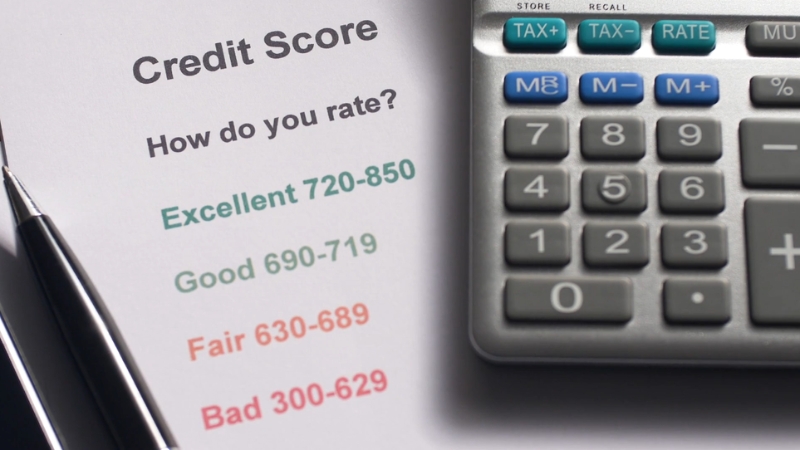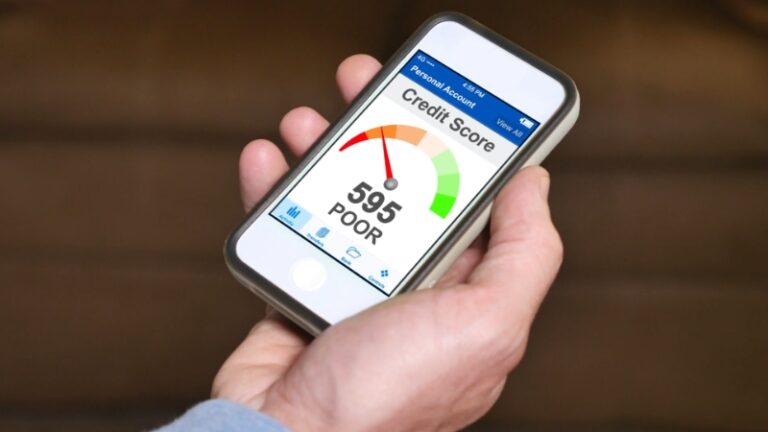Settling a debt means you negotiate with a creditor to pay less than the full amount owed, often as a lump sum or through a structured payment plan.
While debt settlement can offer a path out of overwhelming debt, it will almost always lower your credit score, often significantly, and for several years.
The reason: creditors typically report settled accounts as “settled for less than the full balance” or “paid settled,” which is a major negative in your credit history.
This mark can stay on your credit report for up to seven years from the date the debt was first delinquent.
But the real impact depends on your starting score, the rest of your credit history, and what you do afterward.
Debt settlement can be the right solution if you have no realistic way to pay in full, but it’s important to understand the credit consequences before you move forward.
How Does Debt Settlement Work?
Debt settlement is not the same as paying your debt in full, and it’s different from debt consolidation or credit counseling. Here’s what usually happens:
Debt Settlement vs. Other Debt Solutions
Solution
How It Works
Impact on Credit Score
How Long Does It Stay on Report
Paying in Full
You pay the entire debt
May improve if on time, no negative
7 years (positive if no late payments)
Debt Management Plan
Reduced interest, pay full balance
Slight dip, recovers with on-time pay
7 years for late payments, otherwise positive
Debt Settlement
Pay less than the full amount
Significant drop, “settled” status
7 years from delinquency
Bankruptcy (Chapter 7)
The court erases most debts
Major drop, public record
10 years (Chapter 7), 7 (Chapter 13)
How Much Does Debt Settlement Lower Your Credit Score?

There’s no single number, but here’s what most people experience:
If you already have late payments and collections, your score is probably low already. Debt settlement won’t drop it much further, but the “settled” mark will slow your recovery.
If your score is fair or good and you’ve been making payments, a settlement can drop your score by 100 points or more almost overnight.
The newer the “settled” account, the more it hurts. The impact fades over time but is still visible to lenders for up to seven years.
Credit Score Impact
Starting Situation
Expected Score Drop
Notes
Many late payments, collections
0–40 points (minor drop)
Already heavily damaged
Mostly on-time, score >650
75–150 points (major drop)
“Settled” is a serious negative
Recently settled an old account
Minimal impact
Most damage already done
How Settlement Appears on Your Credit Report
View this post on Instagram
When a creditor accepts less than the full amount, they update your credit file. Expect to see:
- Account status: “Settled for less than full balance,” “Paid Settled,” or “Account Paid for Less Than Agreed”
- Remaining balance: Should be $0 after settlement
- Date closed: Marked as of settlement date
- Collection accounts: If the debt was sold to a collection agency, both the original and collection accounts can show “settled.”
These negative notations can make future lenders wary, especially for major loans like mortgages or auto financing.
Other Consequences to Know

When you settle a debt for less than what you owe, there are some additional consequences you need to be aware of beyond just the hit to your credit score. First, the IRS may treat the forgiven portion of your debt as taxable income.
If the amount forgiven is more than $600, you’ll likely receive a 1099-C form at tax time, and you could owe taxes on that sum. It’s something a lot of people don’t expect, and it can be an unpleasant surprise if you’re not prepared for it.
Another challenge is that settling a debt makes it harder to qualify for new credit in the short term. Lenders see “settled” accounts on your credit report as a warning sign that you didn’t repay a previous debt in full.
For at least two to three years after your settlement, you may find it difficult to get approved for loans or credit cards—or, if you do, you might only qualify for higher interest rates or smaller credit limits.
The process itself can also be stressful. Most people stop making payments during negotiations, which can lead to collection calls, late fees, and sometimes even additional penalties from creditors.
These collection activities can be aggressive, and they add more stress at a time when you’re already trying to fix your finances.
If you had a co-signer on your loan, it’s important to understand that debt settlement will negatively affect their credit as well. Their credit report will reflect the settlement, and they may face the same challenges getting new credit for several years.
Can You Rebuild Your Credit After Debt Settlement?
@theladylikelawyer Replying to @Del Family Yes, rebuilding your credit. Score does not look the same for everyone. You are correct. The lower your household income, the more difficult it is for you to finance a vehicle. If you are in a fixed income, we have low income. We have no income, you’re probably gonna need the help of a cosigner and or a larger down payment. These are things to take into consideration when you’re going into a bankruptcy. I’m a bankruptcy lawyer and I help people navigate debt relief with dignity . #bankruptcylawyer #debtreliefwithdignity #bankruptcymagic #magicofbankruptcy #bankruptcyattorney #knowledgeispower #themoreyouknow #youwillbeokay #stopsuffering #rebuild #credit #creditrebuilding #creditscore #after #bankruptcy #dti #debttoincome #ratio #lawyer ♬ No sounds 3m pagibig_ily – Chapsoy Plays 🎮
Despite all this, it is possible to rebuild your credit after settling a debt—it just takes time and patience. The most important thing you can do is pay all your remaining bills on time going forward. On-time payment history is the biggest factor in credit score recovery.
Keeping your credit card balances low—ideally under 30% of your available credit—will also help. Some people find it useful to open a secured credit card or a credit builder loan as a way to reestablish a positive payment history.
It’s also a good idea to regularly check your credit report for errors. Sometimes, settled debts are reported incorrectly by lenders, so if you see anything wrong, dispute it with the credit bureaus to get it fixed. Finally, resist the urge to close old credit accounts, even if you’re not using them.
The longer your credit history, the better your score will be over time. Rebuilding your credit after debt settlement won’t happen overnight, but with consistent good habits, you’ll see steady improvement.
Frequently Asked Questions
Final Thoughts
How does debt settlement actually work? Typically, you’ll work with a debt settlement company. They’ll advise you to stop making payments, allowing your debt to grow while they negotiate. This can negatively impact your credit score, so weigh the pros and cons carefully. #credit
— Mia Evelyn (@MiaEvelyn_02) April 10, 2025
Debt settlement can give you a fresh start, but it does real damage to your credit score and may limit your borrowing options for years. If you’re out of options and facing mounting late fees or collections, it’s sometimes worth the hit, especially if bankruptcy is the only alternative.
The key is to go in with your eyes open, get everything in writing, and have a plan for rebuilding your credit once the dust settles.
If you’re unsure about your best move, talk to a nonprofit credit counselor or financial advisor. They can walk you through the pros, cons, and possible alternatives so you can make the smartest choice for your situation.
And remember: no credit setback lasts forever if you keep moving forward.

